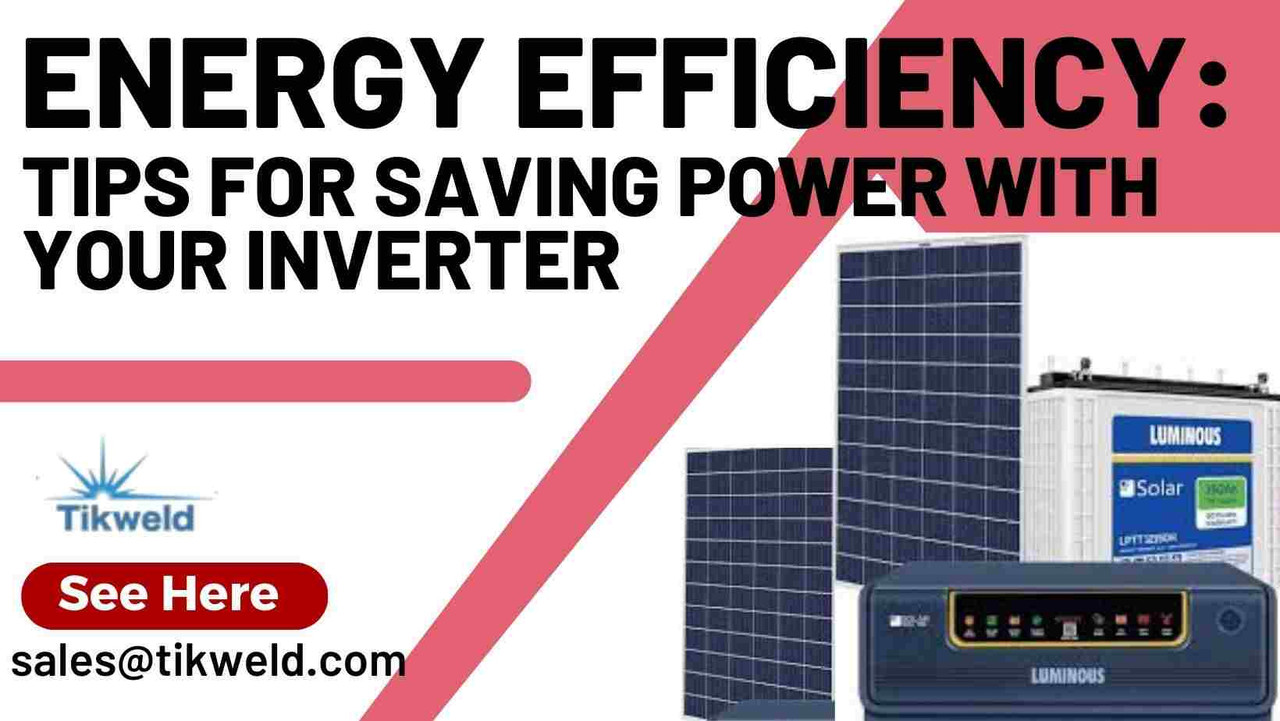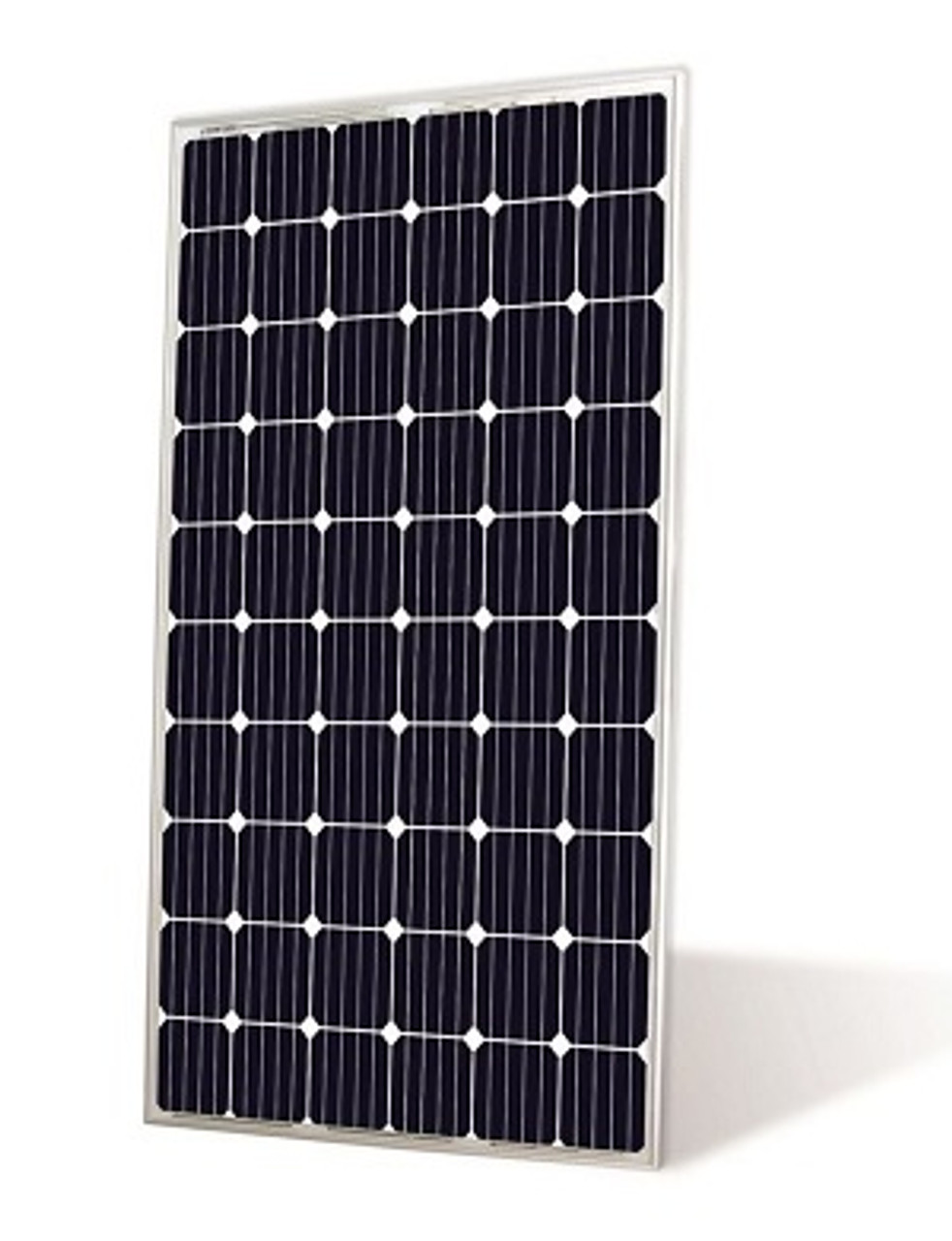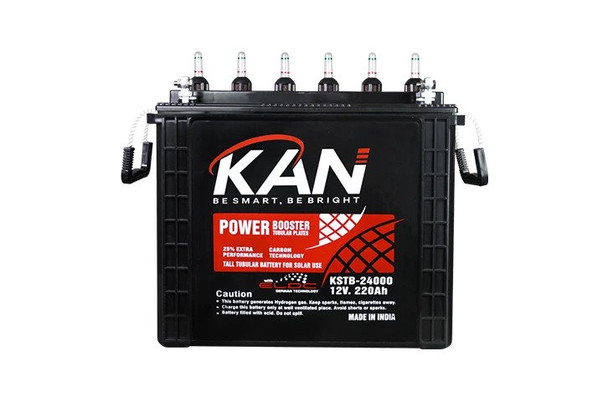Energy Efficiency: Tips for Saving Power with Your Inverter
In the modern era, where power disruptions can disturb our daily routines, the significance of power inverters has grown substantially. These devices act as a backup power solution, enabling us to carry on with essential tasks even during blackout periods. Nonetheless, for optimal functionality of your inverter, it is vital to prevent premature depletion of its battery.
The initial step toward ensuring the prolonged performance of your inverter involves selecting the appropriate battery type. Inverter batteries are renowned for their robustness and efficiency, designed to endure deep discharges, making them well-suited for inverter use. When acquiring an inverter battery, factors such as capacity (Ah), brand reputation, and warranty should be taken into consideration. Investing in a high-quality battery will yield long-term benefits. Inverters play a critical role in furnishing backup power and guaranteeing uninterrupted electricity supply. However, achieving energy efficiency with your inverter necessitates a blend of intelligent practices, technological awareness, and thoughtful utilization. Let's explore some key tips to assist you in effectively conserving power.
Solar Panel (Mono PERC) 390watt Tescom
Tips for Saving Power with Your Inverter
1. Right Sizing:
Choosing the correct size of the inverter is the foundation of energy efficiency. An oversized inverter may consume more power even when running light loads, while an undersized one might strain to power all your devices efficiently. Assess your power needs accurately to select the right-sized inverter.
2. Inverter Technology:
Opt for modern inverters with advanced technology. Pure sine wave inverters provide cleaner and more stable power, reducing the risk of damage to sensitive electronics and enhancing efficiency.
Lento Inverter 1100VA/12V Sine wave Inverter
3. High-Efficiency Appliances:
Invest in energy-efficient appliances. Devices with high energy efficiency ratings consume less power, allowing your inverter to operate optimally.
4. Scheduled Maintenance:
Regularly maintain your inverter system. Check for loose connections, clean the battery terminals, and ensure proper ventilation. A well-maintained system operates more efficiently and has an extended lifespan.
5. Battery Health:
Batteries are a critical component. Opt for high-quality, deep-cycle batteries and monitor their health. Regularly check water levels, recharge before depletion, and replace aging batteries to maintain efficiency.
Kan 12v. 220AH Solar Tubular Battery
6. Smart Charging:
Implement smart charging practices. Charge your inverter batteries during off-peak hours to take advantage of lower electricity rates, if applicable. Some modern inverters also come with features like battery equalization and temperature compensation for optimal charging.
7. Load Management:
Distribute loads evenly. Avoid overloading your inverter, as this can lead to inefficiencies and reduce the overall lifespan of the system. Consider using power strips to manage multiple devices efficiently.
8. Automatic Voltage Regulation (AVR):
Incorporate inverters with Automatic Voltage Regulation. AVR ensures a stable output voltage, safeguarding connected devices and reducing power consumption.
Deep Cycle Battery 12V200AH LM-200 Lemax
9. User Education:
Educate users on efficient power consumption. Encourage turning off non-essential devices when not in use and adopting energy-saving practices to maximize the inverter's efficiency.
10. Inverter Placement:
Install the inverter in a well-ventilated area. Adequate airflow helps prevent overheating, ensuring the inverter operates efficiently.
Conclusion
Achieving energy efficiency with your inverter is a key aspect of responsible power management in today's world. By adhering to the tips provided, from selecting the right battery to adopting smart usage practices, you not only enhance the performance of your inverter but also contribute to a more sustainable and eco-friendly energy footprint. As we strive for a future with reliable and efficient power solutions, let these strategies guide you in making informed choices that benefit both your immediate power needs and the broader goal of conserving energy resources. Embrace the possibilities that technology and mindful energy practices offer, and empower yourself to save power effectively with your inverter.
Frequently Asked Questions
Q1 Can an inverter work without a battery?
The short answer to the question "can a solar inverter run without batteries?" is "yes!" In the event that you decide to establish a hybrid system that uses an inverter to convert solar energy into AC power. This only functions if you have enough sunlight and solar panels installed.
Q2 Is it better to have more solar panels or more batteries?
It could take more solar panels to produce enough electricity if your energy consumption is excessive. Additional batteries may be necessary for sufficient energy storage if you use electricity a lot at night or on overcast days.
Q3 Why Use Distilled Water for Inverter Battery?
Battery manufacturers recommend distilled water for batteries because it contains no dissolved minerals, salts, or organic and inorganic compounds that may harm the battery. By using distilled water, you can help improve performance and extend the life of your battery.
Related Articles
Buy Your Quality Inverter Batteries
SOLAR ENERGY ADVANTAGES AND DISADVANTAGES
Choosing the Right Solar Inverters for Your Home in Nigeria
Contact us for availability of Inverter within your location











